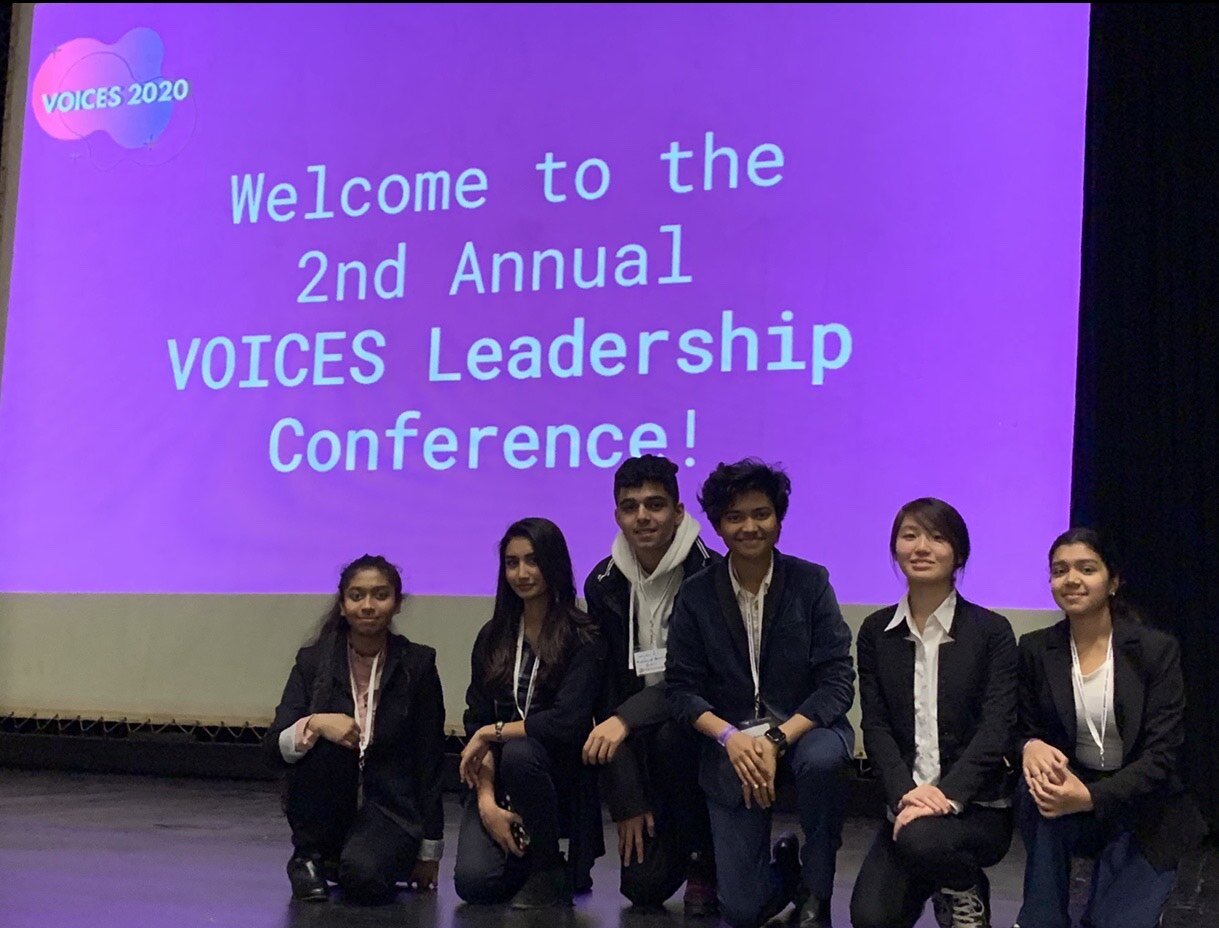Between Bangladesh and Queens: My story of immigration to entrepreneurship
/Jahin Rahman (third from right) attended the VOICES Leadership Conference earlier this year. Photo courtesy of Rahman
By Jahin Rahman
About 8,000 miles, several thousand cities, a few hundred countries and multiple oceans.
That’s the geographical distance between Dhaka, Bangladesh and Queens.
Yet, when my mom told me that we were immigrating to the United States, I felt as though I were to prepare for a journey which entailed breaking the barriers between innumerable worlds — a paradigm shift between civilizations.
My concepts of the American life were crafted illusional figurines, crystallized by intangible depictions of the Western lifestyle on the Disney Channel.
I had never practiced to play the role of a character from one of my American morning TV shows, but that’s what I felt like was expected of me as I heard the news.
I think I have quite a hazy memory, but the day I heard the news remains as clear in my memory as an unpolluted river. The school van dropped me off after my exam at a rather narrow alley in Mirpur, where I lived with my extended family.
It was a monsoon morning; I jumped out of the van, skipped my way across the uthaan — drenched by rain but careful not to slip on the algae forming on the yard. I halted near the tap to wash my once-white school shoes, now caked in mud.
Wet books and question paper in hand, I struggled to open the tap. That’s when I saw my mom venture to the dangerously wet veranda, holding a paper.
“This letter came in the mail today. We are going to America,” she announced.
I couldn’t tell by her facial expression the underlying emotion — euphoria, amusement, regret, or a mix of all. Who knows?
“Crude timing to play a joke as I am soaked in rain and drain water,” I thought. But it wasn’t a joke.
Fast forward several years. I am now finishing high school in Queens.
I reside in the vibrant Queens Village area with my family.
Yet, I remember where I came from: Bangladesh.
I love my native land, but there are certain principles and conditions that I believe must be changed.
My childhood experiences molded my perception that lives around me were greatly in danger in Dhaka.
People have become accustomed to the sight of child waiters being abused, little boys using drugs and the families of 16-year-old brides being forced to pay dowries. However, the fact that these problems are prevalent enough to become parts of the Bangladeshi life does not make them right.
When I entered high school in the U.S.A, I did research on child poverty and took a lot of classes online regarding sustainable development. Whenever economists sought to exemplify extreme concentrated poverty, their immediate description was of South Asia or tropical Africa.
When portrayal of an unsustainable city was necessary, the example was often my city, Dhaka, where the population had grown from half a million to 15 million in the span of a few years; where child poverty was a widespread catastrophe.
Soon after, I founded an NGO named Efforts in Youth Development of Bangladesh, or EYDB, with a motive to enrich the lives of street and orphan children, who are often denied basic human rights such as shelter, education, and dignity. I believe that by providing these young people with quality education and developmental opportunities, they can grow up to be the next generation of self sustainable Bangladeshis, who will go on to alter the socio-economic dynamics of Bangladesh.
Amid a global pandemic, we must join forces to support those affected the most in Bangladesh: marginalized and impoverished communities.
To initiate efforts in combating COVID-19, I got in touch with Beacon Point INC. in Dhaka and arranged to send funds to Bangladesh. From New York, I started fundraising to send the relief.
In two weeks, EYDB successfully provided rations of rice, vermicelli, sugar, potatoes, lentils and oil to some impoverished families in the Dhaka area who were affected tremendously by the pandemic. But these were not the only projects that EYDB pursued.
I recruited 102 volunteers from across the United States and four different countries for EYDB’s COVID-19 efforts. I trained these volunteers over Zoom through training sessions to develop yearlong educational materials for Bangladeshi children in grades K-8.
This summer, I hope to travel to Bangladesh and provide 5,000 children living in slums, whose education has been halted as a result of school closings, with the yearlong educational material that EYDB is creating.
The families of many of these children have been affected in such a manner by the pandemic that a lot of children will not be able to re-enroll in schools. EYDB is also looking forward to collaborating with Queens politicians to provide services across New York City.
I decided to initiate EYDB and inspire other Bangladeshi teens to join in my lead of providing for their community back home. Youth voices are tremendously important in combating the persistent crises present in the modern world.
One call to action may be ignored by the world, but as youth across the globe work together, they become such a sphere of force that their call to justice can no longer be overlooked.
It took me a journey of 8,000 miles between different worlds to find my passion, but I hope that many more will soon hold my hand as we become a global force of young change makers.
Jahin Rahman is a high school senior in Queens and the founder of Efforts in Youth Development of Bangladesh.




